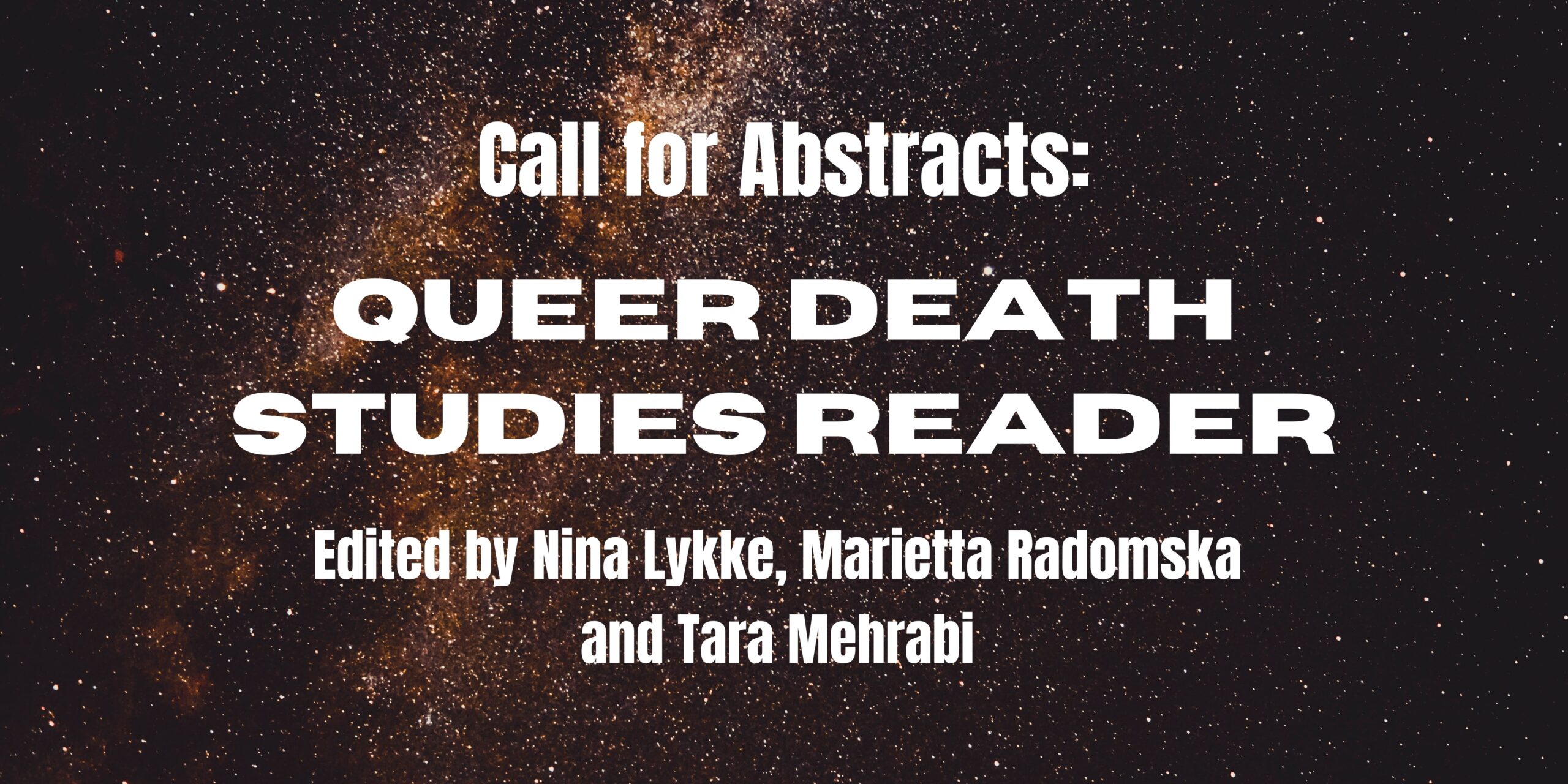-

Call for abstracts: Queer Death Studies Reader. Edited by Nina Lykke, Marietta Radomska and Tara Mehrabi
The field of Queer Death Studies The planned reader will gather a wide range of contributions to the field of Queer Death Studies (QDS). This […]
-
New Publication: Special issue of the journal Australian Feminist Studies focused on Queer Death Studies
For those of you who follow activities of Queer Death Studies Network: check out this exciting special issue of Australian Feminist Studies co-edited by Marietta […]
-
Workshop: Becoming with Alien Encounters and Speculative Storytelling
Welcome to the workshop “Becoming with Alien Encounters and Speculative Storytelling in a More-than-human World” that takes place on 4th June at 13:15 – 16:00, […]